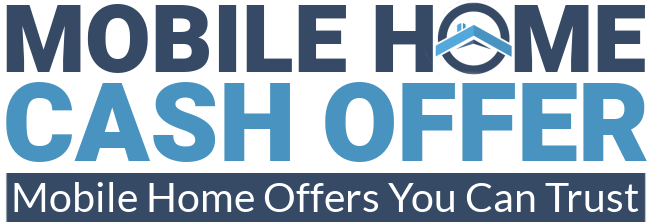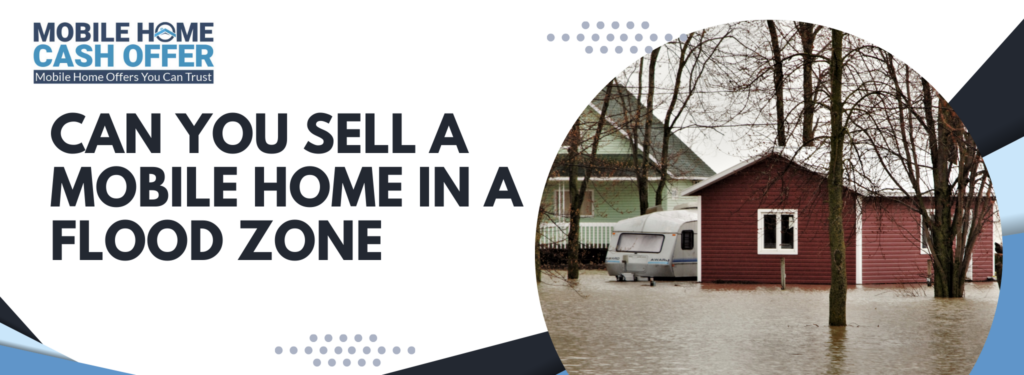
Understanding Flood Zone Classifications for Mobile Homes
When selling a mobile home in a flood zone, it’s essential for both the seller and the potential buyer to understand the different types of flood zones. FEMA sets flood zones based on how likely they are to flood. Low-risk areas are called Zone X, and the high-risk regions are called Zones A or V.
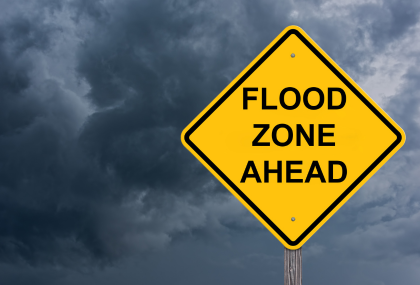
Sellers need to know exactly what group their property is in because it affects insurance needs and potential buyers’ worries. For example, homes in Zone A might need to have flood insurance, which can make them more expensive and less appealing to buyers.
Being open about this information not only builds trust but also informs buyers about any extra costs they might face. Looking at elevation certificates and past flood data can provide more information about the property’s risk level. This helps buyers give a more accurate picture of the property and make their mobile home more competitive in the real estate market.
Understanding FEMA Guidelines on Selling Properties in Flood Zones
Knowing the FEMA rules is very important if you want to sell a mobile home in a flood zone. The Federal Emergency Management Agency (FEMA) has specific rules and suggestions for selling homes in flood zones.
Sellers must ensure that their mobile homes follow these rules to avoid legal and financial problems. Essential parts include telling potential buyers if the land is in a flood zone and ensuring the structure meets current standards for managing floodplains. For example, the mobile home may need to be raised above the base flood elevation levels.
Sellers might also want to get an Elevation Certificate, which can be an important document for buyers who want to get flood insurance. Knowing the rules for FEMA’s National Flood Insurance Program (NFIP) can also help the sale go more smoothly by letting both the buyer and seller know about the different insurance choices and how much they might cost.
It is essential to know about any changes to FEMA plans or policies, as these can greatly impact zoning classifications and insurance rates. By learning about these FEMA rules, you protect sellers legally and build buyer trust, making the whole process of selling a mobile home in a flood-prone area go more smoothly. We buy Mobile Homes as-is and even buy mobile homes that were in flood damage. We buy mobile homes in Arkansas, California, Colorado, and other states across the country.
Legal Requirements for Selling a Mobile Home in a Flood Zone
To ensure the sale of a mobile home in a flood zone goes smoothly, it is important to follow certain legal requirements. First, federal and state laws require sellers to tell possible buyers everything they know about the flood zone designation.
This includes telling potential buyers about any past flooding in the area and the risks associated with living there. It is also essential to ensure the mobile home follows the rules for living in a floodplain in that area. This could mean raising the building or taking other steps to protect it.
As a seller, you should get an Elevation Certificate that shows how high your home is above base flood levels. This paper can have a big effect on how much potential buyers pay for insurance. To avoid legal problems, it’s also essential to ensure all the necessary checks and permits are done before the property is put on the market.
Working with a real estate agent with experience selling homes in flood zones can be helpful. This is because they will know how to handle these complicated requirements and make sure that all laws and codes are followed.
Disclosure Obligations When Selling Property in a Flood Zone
Knowing and following the disclosure rules is very important when selling a mobile home in a flood zone. If a property is in a marked flood zone, sellers must give potential buyers all the information they need to know about it. This is because the location of the property can have a big effect on insurance costs and the value of the property.
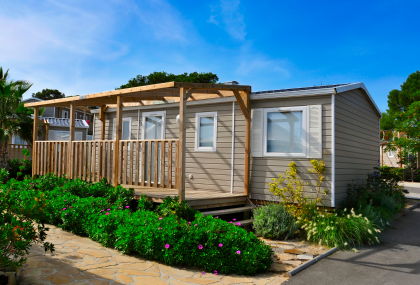
It is important to discuss any flood damage or fixes that were done to the mobile home in the past. Being honest builds trust and lowers the chance of future disputes. Learn about the federal, state, and neighborhood rules about telling people about flood zones to ensure you follow them.
Giving potential buyers accurate flood history reports and elevation certificates can help them make better choices and may make the transaction process go more smoothly. In addition, buyers should be ready to talk about any steps that have been taken to protect the property from flooding.
By being honest about these critical points, sellers can control what buyers expect while also following the law when buying or selling a home in an area that is likely to flood.
The Role of Elevation Certificates When Selling a Mobile Home
An elevation license is a very important part of the process of selling a mobile home in a flood zone. This document gives possible buyers and insurance companies important information about your home’s elevation in relation to base flood levels.
Having a correct elevation certificate can make a big difference in how much your flood insurance costs, which can make your mobile home more appealing to buyers who are worried about future costs. This also shows that the seller is honest and ready, which could speed up the selling process.
By giving buyers verified information about where your mobile home is located in the flood zone, you help them make smart choices and draw attention to any risk-reduction measures that are already in place. If you are selling a home in a flood zone, making sure that your elevation certificate is up-to-date and easy for buyers to find can boost buyer trust and speed up the negotiation process. We buy mobile homes in Concord, High Point, Wilmington and all across North Carolina and other states.
Assessing the Market Value of Mobile Homes in High-risk Areas
There are a few essential things to consider when figuring out how much a mobile home in a high-risk storm zone is worth on the market. Knowing how the local real estate market is changing is essential because it helps you find similar sales and set a price that will compete.
Mobile homes in areas prone to flooding usually need to be inspected carefully to see if they are structurally sound and if there is any water damage that could lower their value. Accurate insurance ratings and flood zone maps are important because they show how dangerous the area is and could affect buyer interest.
Also, sellers should talk about any steps to protect the property from flooding, like raising the foundations or improving the drainage. This can make the property more appealing and help them explain their asking price. When you work with real estate managers with experience selling homes in high-risk areas, they can also help you set the right price to attract buyers who know what it’s like to buy a mobile home in a flood zone.
Assessing the Impact of Climate Change on Property Values
If you want to sell a mobile home in a flood zone, you need to know how climate change will affect property prices. Climate change has made flooding more common and worse, directly affecting real estate markets and the appeal of homes in places that are likely to flood.

People who are looking to buy are less likely to do so in flood zones, where homes are more likely to be damaged or where insurance rates are higher. As a seller, you need to look at these things by getting up-to-date flood risk assessments and knowing what the local environment will be like in the future.
With these tips, you can price your mobile home correctly and promote its value, even if the weather changes. Potential buyers can also feel more confident in the long-term viability of their investment if you discuss any flood mitigation measures or changes that have been made to make the property more resistant to future flooding.
Preparing Your Mobile Home for Sale in a Flood-Prone Region
When getting your mobile home ready to sell in an area that is prone to flooding, it’s essential to show how strong and appealing it is despite its location’s problems. First, make sure the building is well-kept. This means looking for water damage or mold and fixing anything that’s broken.
Putting important systems like electricity panels and HVAC units higher can make the house more flood-proof, which will make it more appealing to buyers who care about safety. Maintaining a clean exterior, including greenery that can help water drain during heavy rains, can boost your home’s curb appeal.
Potential buyers will feel more confident in your home’s stability if you show them detailed proof of any flood protection measures you’ve put in place, like sump pumps or flood barriers. In a competitive real estate market, highlighting these features in your marketing materials can help your mobile home stand out. By turning risks into selling points that stress safety and readiness, you can turn risks into benefits.
Conducting an Effective Home Inspection in a Flood-Prone Area
When selling a mobile home in an area that is prone to flooding, it is essential to have a full home inspection done to make sure the deal goes smoothly. First, hire a trained inspector who has previously worked on flood zone properties. This way, you can be sure that they will know how to deal with the problems in these areas.
The foundation, structural integrity, and any possible water damage that could lower the home’s value should all be carefully checked during the review. Also, look for mold and mildew growth, which is common in areas that often flood.
To avoid the risks associated with water exposure, make sure that the electrical systems are up to code and properly maintained. Also, check to see how well the drainage systems around the property work to lower the risk of floods in the future.
Keeping detailed records of all findings not only helps with fixing things that need fixing, but it also builds trust with possible buyers. By finding and fixing these problems ahead of time, you can make your mobile home more appealing while also successfully handling the complicated real estate market in flood zones. At Mobile Home Cash Buyer, we’re here to help, and we can also help you with identifying and verifying your Mobile Home VIN Number; you can read our testimonials and contact us today to see how we can support you every step of the way.
Improving the Curb Appeal of Mobile Homes Located Near Water Bodies
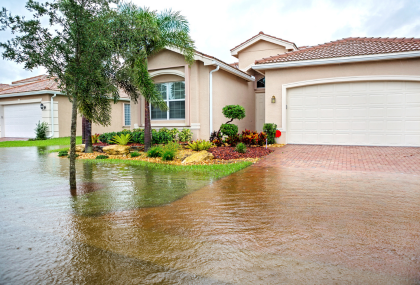
If you want to sell your mobile home in a flood zone near water, you need to make it look better from the street. Start by landscaping the outside of the house with flood-resistant plants, like local ones that can handle too much water.
A fresh coat of paint that won’t peel in bad weather can also make the mobile home look much better. Raised flower beds or pots can add bright color without the risk of water damage.
Keep walkways and roads in good shape and use materials that let water pass through them to help with runoff management. Add outdoor lighting to draw attention to important features and make the area feel more inviting for watching in the evening.
Also, make sure the area around the mobile home is clean and free of clutter, and quickly remove any debris from past flooding. Paying more attention to these things will not only make the house look better but also show that you’ve been maintaining it, which is very important when selling a home in a high-risk flood zone.
Highlighting Safety Features of Mobile Homes in Flood Areas
It’s important to highlight the safety features of a mobile home that are meant to keep it from flooding when you’re trying to sell it in a flood zone. First, draw attention to how high the mobile home is. Structures that are higher are less likely to be damaged by flooding.
Talk about any anchoring or strengthened foundations that keep the house stable when the water level is high. Show the water-resistant building materials, like moisture-resistant flooring and siding, that help minimize harm and make cleanup easier after a flood.
Show off any sump pumps or drainage systems that come with the mobile home. These features help remove extra water and lower the risk of flooding. Also, list any nearby infrastructure changes that make the community safer, such as levees or flood walls.
By stressing these safety features, potential buyers can feel better about buying a mobile home in an area prone to flooding, knowing that their investment comes with essential protections against flooding risks.
Insurance Options for Buyers in Flood Zones
If you’re trying to sell a mobile home in a flood zone, you need to know about and be able to use your insurance choices. Homes in high-risk areas often require flood insurance, and pointing out how cheap the coverage is can make your mobile home more appealing.
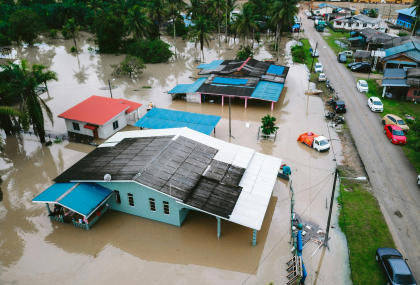
Buyers usually worry about how much flood insurance costs and whether it’s easy to get. Easing their minds can be done by giving them full information about reputable insurers and policy details. Learn about both government-backed programs, like the National Flood Insurance Program (NFIP), that offer controlled rates, and private insurers who might offer better deals.
Stressing that these choices offer financial safety against flooding can reassure buyers and make the transaction go more smoothly. Proactively offering clear insurance options can boost buyer confidence and raise the chances of making a sale.
Marketing Strategies for Selling Mobile Homes in Risky Locations
If you want to sell a mobile home in a flood zone, you need to use good marketing techniques to get people interested and get around the problems of being in a dangerous area. Start by pointing out any steps that have been taken to protect the property from flooding, like raising the foundations or making the drainage system better. This will ensure buyers that the property will be safe from flooding.
Stress the good things about living in the area, like its proximity to services, beautiful views, or community features that could appeal to people who want to buy a house. Use high-quality pictures and video tours to show off the mobile home’s inside and outside, ensuring that the best features stand out.
You might want to focus your advertising on specific groups of people who are more likely to be willing to buy homes in flood zones. Use social media and online platforms to reach a large audience, and use targeted keywords like “affordable living,” “flood-resistant design,” and “investment opportunity” to get people interested.
Working with local real estate agents who know how to sell homes in tough areas can also be very helpful and give you access to a network of interested buyers.
Utilizing Social Media to Promote Sales of At-risk Mobile Homes
Social media can help you sell a mobile home in a flood zone much more quickly. Sites like Facebook, Instagram, and Twitter are great ways to find people interested in buying houses in danger.
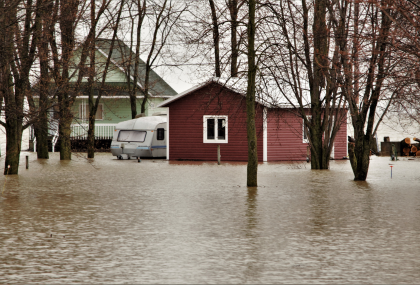
Start by making posts that look good and show off the mobile home’s unique features while indicating that it is in a flood zone. Use high-quality photos and interesting movies to show how strong the property is, such as any flood-proofing or renovations that have been done.
Use hashtags that are linked to real estate, mobile homes, and specific flood zones to get more people to see your posts. Join local real estate groups on social media to share your listings and get in touch with possible buyers who know what it takes and what it can give you to buy an at-risk property.
Post updates often and answer questions quickly to build trust and show that you’re serious about selling the house, even though it’s in a tough spot.
Engaging Potential Buyers Concerned About Flood Risks
If you want to sell a mobile home in a flood zone, you need to answer potential buyers’ concerns about the risk of flooding. Start by giving detailed information about the flood zone and any past flooding in the area.
Include any steps taken to lower the risk of flooding, like building on higher ground, using materials that won’t be damaged by water, or installing sump pumps. Make it clear that cheap flood insurance options are available and give buyers accurate estimates to reassure them that the costs will be manageable.
Give information about what the community is doing to improve drainage systems or about recent structure changes that make flooding less likely. Sharing reviews from current residents who have had good experiences despite the location can also help calm people down.
Sharing information about escape routes and emergency plans will help build trust and show that you care about safety. By handling these concerns, you can better interest potential buyers and stress how valuable it is to own property in this area.
Establishing Trust with Buyers During the Sale Process
When selling a mobile home in a flood zone, building trust with possible buyers is essential so that the deal goes smoothly. Start by being honest about where the house is and whether it has ever flooded. Being honest builds trust and shows that you are trustworthy.
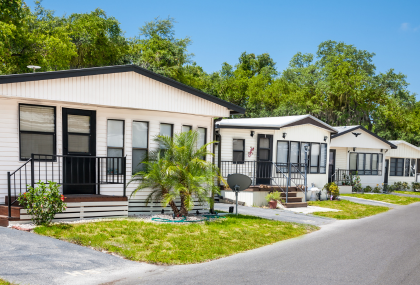
Include all the proof you have, like flood insurance policies, elevation certificates, and any changes you’ve made to lower your risk of flooding. Bring attention to any features that make the home safer during floods, like raised foundations or sump pumps that are already installed.
Be honest about the steps you’ve taken to keep the property, to reassure buyers that it has been well-kept despite its difficult location. Offering detailed inspections by qualified professionals can help buyers trust you even more by showing your commitment to openness and quality control.
Long-term Investment Considerations for Properties in Vulnerable Areas
It is essential to carefully weigh the risks and benefits of investing in properties in flood-prone areas over the long run. Real estate in flood zones can be tricky, but if you plan and take the proper safety measures, these homes can bring in a lot of money.
People who want to buy a home should carefully look at their flood insurance choices to ensure they have enough coverage to protect themselves against possible losses. Investing in resilient infrastructure changes like raised foundations or flood barriers can also increase the value of a home and attract buyers who care about the environment.
Investors can make wise choices about buying or selling mobile homes in risky areas by staying current on local zoning laws and climate change predictions. Even though there are risks with investing in flood zones, buyers can make their mobile homes look like good investments by knowing how the market is moving and taking advantage of government programs that encourage building strong structures.
